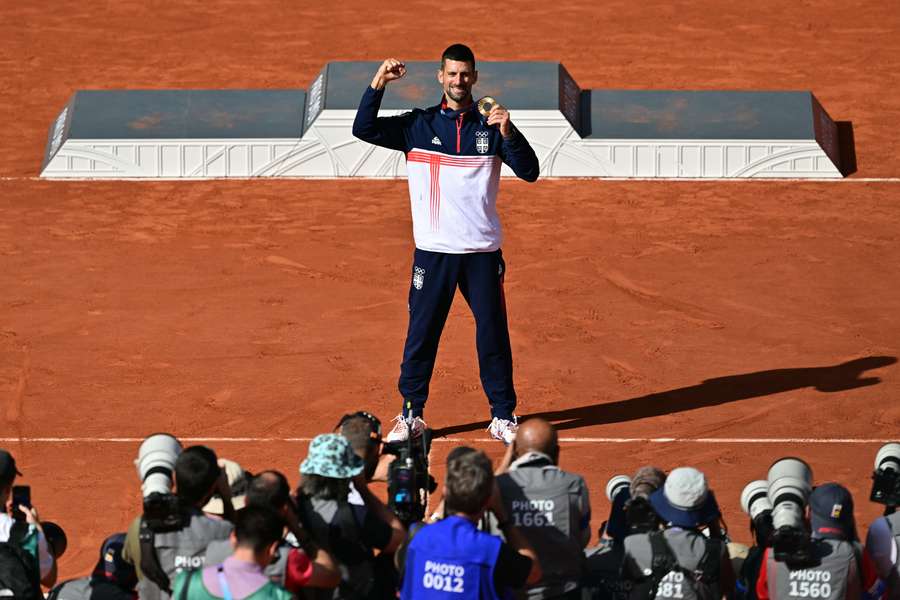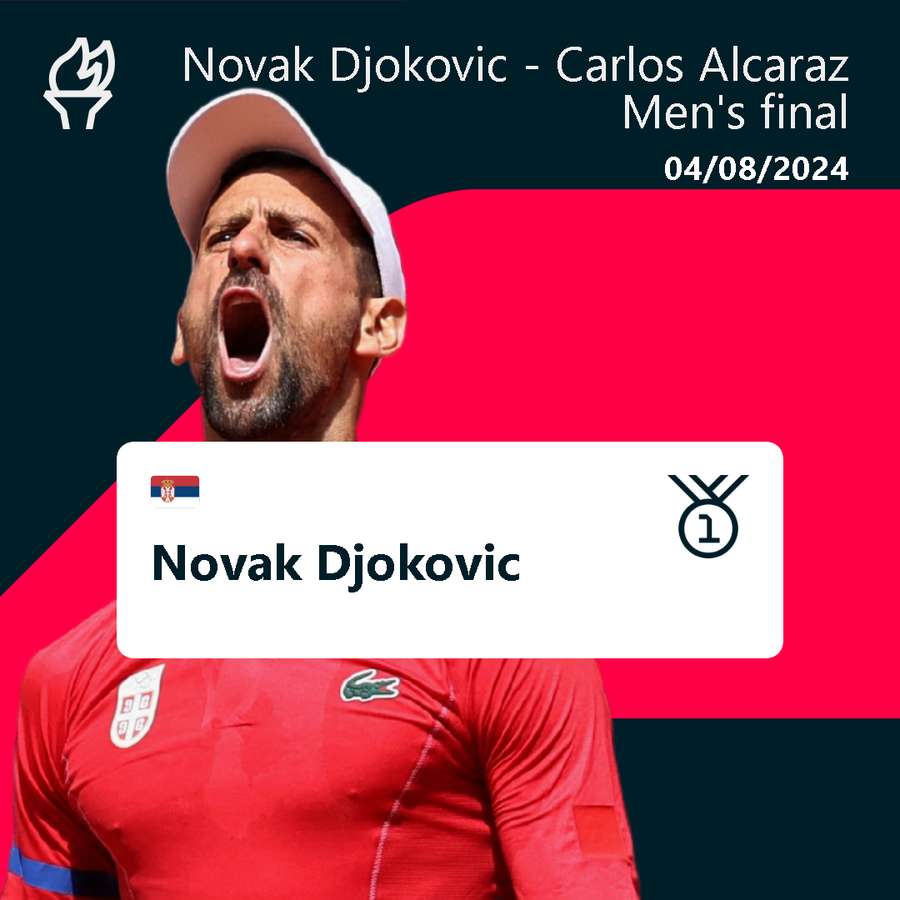Medal caps golden career for Novak Djokovic the tennis title collector

The Serbian top seed defied a 16-year age gap at Roland Garros on Sunday to win 7-6 (7/3), 7-6 (7/2) in what was likely to be his final shot at Olympic glory.
The 37-year-old had nothing to prove against a young rival who has time on his side to surpass even his own achievements but he showed an intense desire to win.
At the moment of victory he dropped to the red clay, shaking with emotion, showing how much victory meant for him.
The Serbian is already out on his own with 24 Grand Slams - four more than career-long rivals Roger Federer and two ahead of Rafael Nadal.
He also has a stack of other records in men's tennis including a record 40 Masters-level titles and most weeks at number one - a staggering 428.
But up until Sunday his best performance at the Olympics was a bronze in singles at the Beijing Games in 2008.
He had not won a single tournament so far this year but in Paris he showed the astonishing will to win that sets him apart as he simply refused to be beaten.
Big Three
Djokovic did not launch his career in a vacuum - he started out at a time when Federer and Nadal were hoovering up nearly all the major titles.
When the Serb won his first Grand Slam, at the Australian Open in 2008, Federer was already on 12 majors and Nadal had taken virtual ownership of the French Open.
Djokovic did not win another major until 2011 but since then he has been voracious, despite the occasional fallow period.
He has made no secret of his aim to be the greatest of all and few would now argue against that.
Just weeks ago he had to pull out of the French Open ahead his quarter-final before undergoing knee surgery.
But he returned to reach the Wimbledon final, where he was humbled by Alcaraz in straight sets.
Despite his astonishing achievements, while Nadal and the now-retired Federer are adored across the world, Djokovic, even now, sharply divides opinion.
He famously had to battle Federer and a pro-Swiss crowd in the 2019 Wimbledon final, which he won after saving match points.
An exasperated John McEnroe expressed his frustration at the way that Djokovic is sometimes treated during last month's Wimbledon.
"He's like the Darth Vader compared to two of the classiest acts we've seen play tennis - Rafael Nadal and Roger Federer," he said.
'Greatest'
The American three-time Wimbledon champion added: "He's by far the guy who's taken the worst heat and that's why I would say he's the greatest that's ever played."
Djokovic has been content to plough his own furrow and has shown an astonishing ability to shut out the noise.
He dropped gluten from his diet early in his career, crediting the change with transforming his results.
The lithe physique of the rubber man of tennis enables him to chase down seemingly lost causes and he combines a brutally efficient game with a rock-solid defence.
But some personal stances have drawn criticism - one claim that raised eyebrows was his belief that it was possible to alter the composition of water and food through positive thinking.
And Djokovic's tennis has often been overshadowed by controversies.
His infamous default from the US Open in 2020 for petulantly swiping at a ball that hit a female line judge gave a glimpse of his fiery character.
At the French Open last year, he wrote "Kosovo is the heart of Serbia" on a courtside TV camera lens as ethnic tensions were again rising in the Balkans.

His refusal to be vaccinated against Covid proved costly - he was deported from Melbourne on the eve of the 2022 Australian Open.
On the court, time is ticking for Djokovic but he shows few signs of losing his physical edge - half of his 24 Grand Slams have come after he turned 30 and he can go toe to toe with men nearly half his age.
When he does finally hang up his racquet he can do so in the knowledge he has done it all.
